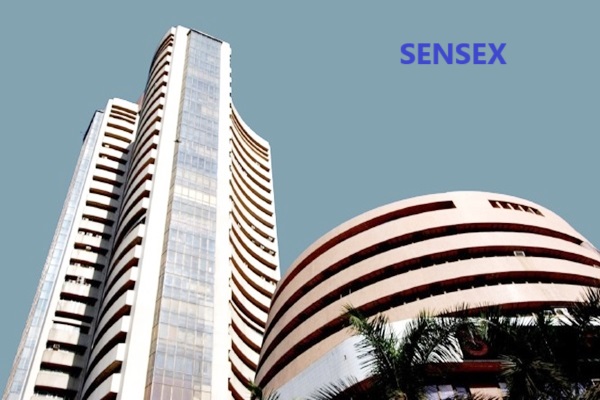
(Photo : Sensex)
The Indian stock market closed today due to Maharashtra assembly elections.
- The Indian stock market closed on Wednesday due to Maharashtra assembly elections, amid escalating Russia-Ukraine tensions.
- The closure followed a significant market surge, then loss, affecting all segments including equity, derivative, and securities lending and borrowing (SLB).
- Despite geopolitical tensions, the market saw heavy buying in the media sector, with Nifty Media registering a gain of 2.45 per cent.
- The market's recent volatility is reminiscent of the 2008 financial crisis, but driven by geopolitical tensions rather than economic factors.
The Indian stock market was closed for trading on Wednesday due to the Maharashtra assembly elections. This closure came after the market experienced a significant surge on Tuesday, only to lose these gains amid escalating tensions between Russia and Ukraine. The closure affected all segments, including equity, derivative, and securities lending and borrowing (SLB). Additionally, public holidays were declared for capital markets, futures, and option divisions.
This is not the first time the market has been closed for a public event. Earlier, it was shut on the occasion of Lakshmi Puja on November 1 and Guru Nanak Jayanti on November 15. However, the market's closure on Wednesday was particularly notable due to the geopolitical tensions that have been affecting the market's performance.
On November 19, the Indian equity markets ended a seven-day losing streak in a volatile session, with the Nifty closing at 23,500. This was largely due to buying seen in the auto, realty, and media sectors, which was triggered by the fresh tensions between Ukraine and Russia.
Market Reversal Amid Geopolitical Tensions
The Sensex closed with a gain of 239 points due to heavy profit booking in the last hour of trading. During intra-day trading, the Sensex had gained over 1,100 points. The market experienced a significant reversal when reports emerged of the Ukrainian Armed Forces launching their first ATACMS missile attack on the Russian border region. This led to a warning from the Kremlin of dire consequences.
Despite this, the market witnessed heavy buying in the media sector, with Nifty Media registering a gain of 2.45 per cent. The Sensex closed at 77,578.38 after gaining 239.37 points or 0.31 per cent, and the Nifty closed at 23,518.50 with a gain of 64.70 points or 0.28 per cent.
Experts have noted that the index on a daily scale has formed a doji candle, indicating uncertainty. The high of the doji candle is approaching the 23,780 level, which will serve as critical resistance for the index. On the downside, the 50-Weekly simple moving average (WSMA) is placed near 23,300, which will provide short-term support for the index.
Investor Dynamics Amid Market Volatility
Foreign institutional investors (FIIs) sold equities worth Rs 3,411 crore on November 19, while domestic institutional investors bought equities worth Rs 2,783 crore on the same day. This indicates a shift in the market dynamics, with domestic investors stepping in to buy equities as foreign investors sell.
The recent market volatility is reminiscent of the 2008 financial crisis when global stock markets experienced significant fluctuations due to geopolitical tensions and economic uncertainty. However, unlike the 2008 crisis, the current market volatility is being driven by geopolitical tensions rather than economic factors.
The escalating tensions between Russia and Ukraine have had a significant impact on global stock markets, including the Indian market. The launch of the ATACMS missile by Ukraine and the subsequent warning from Russia have added to the uncertainty in the market. This has led to increased volatility, with the market experiencing significant gains and losses within a short period.
* This is a contributed article and this content does not necessarily represent the views of btin.co.in









